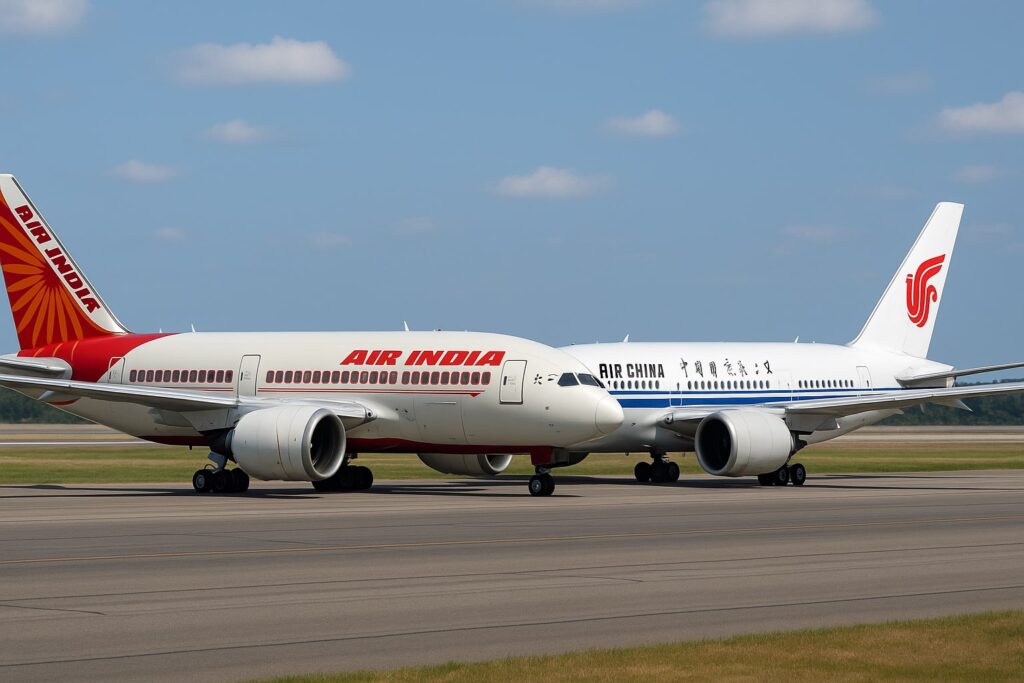India and China will soon see the return of direct passenger flights after more than four years, with both governments agreeing that air services between designated points in the two countries can resume by late October 2025.

The Ministry of External Affairs (MEA) said the arrangement comes after months of technical-level discussions between the civil aviation authorities on restarting services and finalising a revised Air Services Agreement.
According to the MEA statement, “Following these discussions, it has now been agreed that direct air services connecting designated points in India and China can resume by late October 2025, in keeping with the winter season schedule, subject to commercial decision of the designated carriers from the two countries and fulfilment of all operational criteria.” The ministry added, “This agreement of the civil aviation authorities will further facilitate people-to-people contact between India and China, contributing towards the gradual normalisation of bilateral exchanges.”
The decision to resume air connectivity follows a series of high-level engagements between the two sides. Last month, Prime Minister Narendra Modi and Chinese President Xi Jinping met in Tianjin on the sidelines of the Shanghai Cooperation Organisation Summit. The two leaders emphasised dialogue, confidence-building measures and regional engagement as a way forward for bilateral relations. They also reviewed progress on border talks and agreed to continue supporting their Special Representatives in seeking a resolution.
The breakthrough at Tianjin was possible after the two sides finalised patrolling protocols along the 3,500-kilometre Line of Actual Control, which helped ease tensions following a prolonged standoff.
The MEA had noted after the meeting that “the two leaders noted with satisfaction the successful disengagement last year and the maintenance of peace and tranquility along the border areas since then. They expressed commitment to a fair, reasonable, and mutually acceptable resolution of the boundary question proceeding from the political perspective of their overall bilateral relations and the long-term interests of the two peoples. They recognised the important decisions taken by the two Special Representatives in their talks earlier this month, and agreed to further support their efforts”.
Chinese Foreign Minister Wang Yi reinforced the message during his September visit to India for Special Representatives talks with National Security Advisor Ajit Doval. In his remarks, he said Beijing attached “great importance” to Prime Minister Modi’s participation in the Tianjin meeting.
Wang stated, “History and reality prove once again that a healthy and stable China-India relationship serves the fundamental and long-term interests of both of our countries. It is also what developing countries all want to see.”
The renewed dialogue has been accompanied by steps to restore suspended exchanges. Earlier this year, the Kailash-Mansarovar Yatra resumed for the summer of 2025, marking another symbolic move in reopening people-to-people contacts. The announcement on air services is now seen as part of the broader effort to gradually normalise bilateral ties between the two Asian neighbours.


